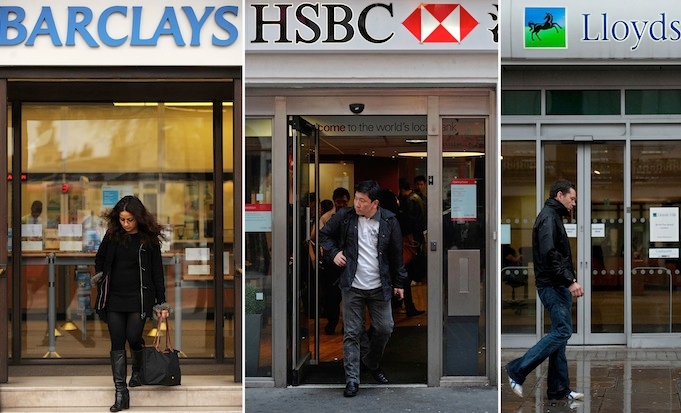Basic bank accounts – products designed for those who are ineligible for standard accounts – may levy higher fees than necessary, according to the BBC.
Government figures suggest that millions of people could be paying over the odds for accounts meant to help them. Despite the introduction of fee-free basic accounts at the beginning of the year, about half of the eight million account-holders are still penalised for failed payments.
Data from the Treasury shows that 3.7 million people have accounts that do not conform to the industry agreement. Of those, 3.6 million bank with Lloyds. In other banking news, the Government has reduced its stake in Lloyds Banking Group to 6.93 per cent. Petrol prices A surge in petrol prices is on the cards following an agreement by oil producers to cut global output. The Guardian reports that ‘the cost of petrol is close to rising above £1.20 a litre in some parts of the UK after a weekend deal between members of the Opec oil cartel and non-Opec countries. The AA motorists’ organisation said the deal would add about 3p to the cost of a litre of fuel after the price of Brent crude climbed to more than $57 a barrel in the wake of the agreement.’ House prices Thisismoney reports on a forecast by Rightmove which predicts that property asking prices will increase by just 2 per cent next year. The listings company also said that inner London prices could fall by 5 per cent.This is due to uncertainty surrounding the housing market. Rightmove said that the average asking price for newly-listed homes for sale fell by £6,511, or 2.1 per cent, in December to £299,159 – although that remains 3.4 per cent higher than a year ago.
Care costs
More on the elderly care crisis today from The Times. It reports that ageing parents are drawing up legal documents to make clear that they would rather die than allow excessive care home fees to eat into their child’s inheritance. The paper stated that ‘the rising cost of elderly care is leading the middle-aged to create powers of attorney enshrining their desire to refuse treatment should they become incapacitated’ and ‘the number of older people registering powers of attorney has doubled to half a million in the past two years as they become more fearful of developing dementia. Councils will fund care for the elderly only once their assets and savings have fallen below £23,500.’ Holidays The Telegraph reports that one of the UK’s largest tour operators has informed holidaymakers they must pay more for their ski breaks this season, despite having already booked. Mark Warner has invoked the ‘surcharge clause’ in its terms and conditions which allows travel firms to ask customers for an additional fee – as much as £50 per person – because the cost of their package has gone up, because of currency fluctuations, or due to rising fuel costs or taxes. Mortgages Mortgage Introducer reports that the City watchdog has launched its study into mortgage competition. As announced in May, the study by the Financial Conduct Authority ‘will probe the impact of the advice process on consumers. It will also look at whether commercial arrangements between lenders, brokers and others can lead to a conflict of interest or misaligned incentives which harm consumers.’ Inflation Figures released this morning show that UK inflation increased to 1.2 per cent in November after a surprise fall in October. Consumer Prices Index inflation rose from 0.9 per cent in October, the Office for National Statistics said. The ONS also said that in the year to October the price of the average house rose 6.9 per cent. That’s a slight fall from the 7 per cent rate in September. House-building The Government will not meet its target of building one million new homes in England by 2020 due to under-resourced planning departments. The Telegraph comments on a new report by the Federation of Master Builders, which represents SME construction firms, and the Local Government Information Unit, which has called for local authorities to be given the ability to raise planning fees in order to boost resources in departments, and help SME builders. Finally…According to new research, an estimated £355 million of unwanted Christmas gifts are set to be returned this year. But with 28 per cent of people saying they have encountered problems when trying to return goods, Gocompare.com Money recommends people check the retailer’s returns policy before trying to return any unwanted Christmas presents.
Over a third of people have returned Christmas gifts in the past, with 11 per cent doing so last Christmas. On average, the value of returned presents last year was £64.40.






Comments